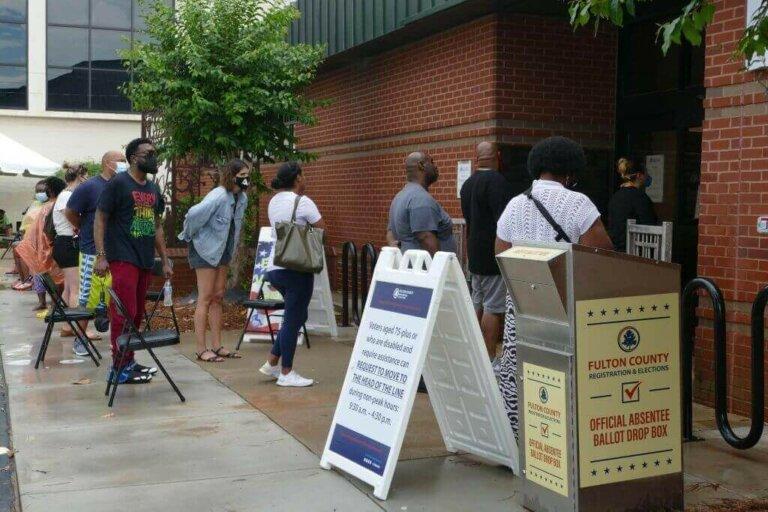
Caption
The final provisions of Georgia's voting law go into effect July 1, with many new rules for absentee voting. Much of the new voting law became official when the governor signed the legislation in March.
Credit: John McCosh/Georgia Recorder

